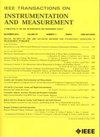用于变负荷下电力机械故障诊断的多深度阶跃训练卷积神经网络
IF 5.9
2区 工程技术
Q1 ENGINEERING, ELECTRICAL & ELECTRONIC
IEEE Transactions on Instrumentation and Measurement
Pub Date : 2024-11-08
DOI:10.1109/TIM.2024.3485394
引用次数: 0
摘要
由于变负载的运行条件,实现电力机械的高精度故障诊断具有挑战性。由于注意力机制能够捕捉振动信号的域不变特征,因此在这一问题上得到了广泛应用。然而,当问题特定于热机诊断时,负载模式和故障模式之间的相互作用会导致注意力崩溃。因此,深度特征的收敛会降低网络的泛化能力。为解决这一问题,本研究采用了与精英策略的注意力机制相反的群智策略集合学习。本研究提出了一种多深度阶跃训练卷积神经网络(MDNN)。多深度架构增强了特征多样性,阶跃训练特征集合将特征纳入决策,从而克服了特征趋同问题。MDNN 使用两个数据集进行了测试:轻型转子轴承试验台(机电系统)和重型柴油发动机试验台(热动力机械)。结果表明,对于负载变化的柴油发动机,注意力机制会加剧特征收敛,而 MDNN 则能有效缓解这一问题。同时,在四种发动机负载混合的情况下,基于注意力机制的网络的诊断准确率从 59.20% 急剧下降到 54.27%,而 MDNN 则上升到 95.46%。这些结果为热动力机械的负载变化故障诊断提供了一种有前途的方法,并使人们全面了解了避免特征收敛在柴油机预后诊断中的重要性。本文章由计算机程序翻译,如有差异,请以英文原文为准。
A Multidepth Step-Training Convolutional Neural Network for Power Machinery Fault Diagnosis Under Variable Loads
Due to the operation conditions of variable loads, it is challenging to achieve high-accuracy fault diagnosis of power machinery. The attention mechanism is widely used in this issue because of its ability to capture domain-invariant features of vibration signals. However, when the problem is specific to thermal engine diagnosis, the attention collapse can be caused by the interaction between load patterns and fault patterns. Consequently, the deep features converge to decrease the network generalization. To address this issue, this research employs the ensemble learning of crowd intelligence strategy, which is opposite to the attention mechanism of elite strategy. A multidepth step-training convolutional neural network (MDNN) is proposed. The multidepth architecture enhances feature diversity, and the step-training feature ensemble incorporates features into decision-making, thus overcoming feature convergence. The MDNN is tested using two datasets: a light-duty rotor-bearing test rig (electromechanical system) and a heavy-duty diesel engine test rig (thermodynamic machinery). According to the results, for the load-varying diesel engine, the attention mechanism exacerbates feature convergence, whereas MDNN effectively mitigates it. Meanwhile, with the mixture of four engine loads, the diagnosis accuracy of the attention mechanism-based network falls sharply to 54.27% from 59.20%, while the MDNN rises to 95.46%. The results offer a promising method for load-varying fault diagnosis of thermodynamic machinery and give a comprehensive understanding of the importance of avoiding feature convergence in the prognostic diagnosis of diesel engines.
求助全文
通过发布文献求助,成功后即可免费获取论文全文。
去求助
来源期刊

IEEE Transactions on Instrumentation and Measurement
工程技术-工程:电子与电气
CiteScore
9.00
自引率
23.20%
发文量
1294
审稿时长
3.9 months
期刊介绍:
Papers are sought that address innovative solutions to the development and use of electrical and electronic instruments and equipment to measure, monitor and/or record physical phenomena for the purpose of advancing measurement science, methods, functionality and applications. The scope of these papers may encompass: (1) theory, methodology, and practice of measurement; (2) design, development and evaluation of instrumentation and measurement systems and components used in generating, acquiring, conditioning and processing signals; (3) analysis, representation, display, and preservation of the information obtained from a set of measurements; and (4) scientific and technical support to establishment and maintenance of technical standards in the field of Instrumentation and Measurement.
 求助内容:
求助内容: 应助结果提醒方式:
应助结果提醒方式:


